
LIFE ST YL ES SPECIAL ISSUE 0922 INFLAMMATION The Deadly Epidemic... Discover SPECIAL ISSUE QUELL INFLAMMATION WITH CURCUMIN THE CARDIOVASCULAR CONNECTION LESS INFLAMMATION = BETTER BRAIN HEALTH THESE INFLAMMATIONFIGHTING FOODS PAGE 8 FREE HOW TO LIVE AN ANTI-INFLAMMATORY LIFE PAGE 18
4 Inflammation Nation
Discover the link between chronic inflammation and disease.

8 Curcumin—The Ultimate Anti-Inflammatory Compound
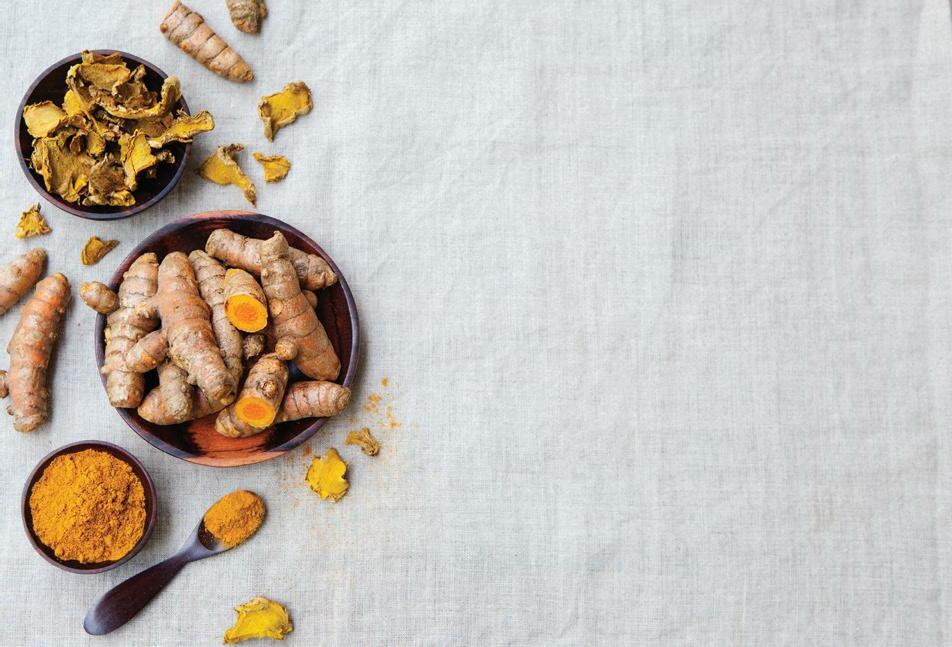
How this golden compound quenches damaging inflammation.
11 The Secret Cause of Inflammation
Could oxidative stress be the true culprit?
12 Getting to the Heart of Inflammation

Connecting the dots between chronic inflammation and heart disease.
14 Mind Matters
Better brain health by controlling inflammation.
16 Eat to Defeat Inflammation
Adopt these anti-inflammatory eating strategies.
18 Living an AntiInflammatory Life
Healthy habits to prevent unhealthy inflammation.

Good Health LIFESTYLES 14
8
12
contents
18 2
Good Health
EDITOR-IN-CHIEF Kim Erickson
 DESIGN/ART DIRECTOR Roberta Jones
DESIGN/ART DIRECTOR Roberta Jones

 DIGITAL CREATIVE DIRECTOR Amy Medina
DIGITAL CREATIVE DIRECTOR Amy Medina
ASSOCIATE EDITORS
Juanita Deterding
Rami Jett
Stan Daniels
Michele Cagan
COPYEDITOR
Brandon DuVall
EDITORIAL OFFICES
10040 W. Cheyenne Avenue Suite 170-161 Las Vegas, NV 89129
editorial@goodhealthlifestylesmag.com
PUBLISHER
VISIT OUR WEBSITE:

GoodHealthLifestylesMagazine.com
For general inquiries, email: info@goodhealthlifestylesmag.com
ViewALL ISSUES
on www.Issuu.com
GHL257_09_2022
Published by FreshLife Media, 10040 W. Cheyenne Avenue, Suite 170-161, Las Vegas, NV 89129.
©FreshLife Media. All rights reserved. No part of this publication may be reproduced without the written permission of the publisher. The opinions expressed by the contributors to Good Health Lifestyles are not necessarily those of the editor or publisher. The information in this publication is solely for educational purposes under Section 5 of the Dietary Supplement Health and Education Act of 1994 and is not intended as medical advice.
EDITOR'S CORNER
Inflammation. It’s a good thing when you sprain your ankle or suffer a cut or bug bite. In fact, it’s an important part of the healing process, triggering redness, heat, swelling, and pain as the immune system sends an army of white blood cells to surround and protect the area. But science now knows that another type of inflammation, known as lowlevel chronic inflammation, can have just the opposite effect, contributing to a host of diseases. Think of it like a nefarious app that continuously runs in the background on your smart phone, causing all sorts of havoc.
Chronic inflammation has been clinically linked to a wide range of conditions, including Alzheimer’s disease, arthritis, cardiovascular disease, diabetes, inflammatory bowel disease, and some forms of cancer. Some researchers even speculate that it’s the underlying cause of many of the diseases that can shorten our lives.
In this special issue, we’ll give you all the info you need on how chronic inflammation can undermine good health. But we don’t stop there. We’ll also provide you with a variety of actionable steps that you can take to extinguish this damaging form of inflammation— including changes to your diet, your habits, and your supplement intake. Not only will these changes reduce chronic inflammation and lower your risk of a variety of diseases; they may even help you live a longer, more vibrant life.
Be well, Kim Erickson
EDITOR-IN-CHIEF
Good Health LIFESTYLES 3
ON YOUR TABLET ON YOUR SMARTPHONE ON YOUR COMPUTER IN PRINT
LIFESTYLES
The silent epidemic that’s making America sick
t’s not something you can see or feel, yet it can quietly simmer away inside your body for years. When it does eventually appear, you probably won’t make the connection between this insidious condition and the diagnoses of Alzheimer’s, diabetes, or heart disease. The “it” contributing to all of these diseases is inflammation— the body’s natural response against injury and infection. When the body’s inflammatory response functions properly, it helps to heal an injury or an infection. But if you are suffering from chronic inflammation, you are likely getting too much of a good thing. Here’s why: Ongoing low-level inflammation upsets the normal checks and balances of your immune response. So instead of helping to heal your body, it does just the opposite. Over time, this chronic inflammation can lead to a litany of dangerous, sometimes deadly diseases. It’s so serious that the National Institutes of Health notes that three out of every five deaths worldwide is due to a disease linked to chronic inflammation.
AN EPIDEMIC OF EICOSANOIDS
How do low levels of inflammation potentially inflict such damage? It all

starts with immune system chemicals called eicosanoids. Eicosanoids control inflammation—both the kind you can see and the kind you can’t. Some trigger inflammation, others extinguish it. If you sprain your ankle, pro-inflammatory eicosanoids produce swelling, redness, heat, and pain. These are visible signs that your immune system is hard at work healing the injury. Once the crisis is over, antiinflammatory eicosanoids kick in and reduce the discomfort. The trouble starts when the pro-inflammatory eicosanoids don’t completely subside, causing the body to go into a state of chronic low-level inflammation.
THE COX CONUNDRUM
Eicosanoids aren’t the only chemicals your body makes that contribute to chronic inflammation. Cyclooxygenase-2, or COX-2, is an enzyme that acts to speed up the production of certain chemical messengers called prostaglandins that play a key role in promoting inflammation. That can be a good thing when you’re sick or injured, and normally this inflammation wanes once you’ve recovered. But when it doesn’t, this continuing flood of prostaglandins
contributes to ongoing inflammation that can damage cells and lead to a host of inflammatory health conditions.
FOOD FOR THOUGHT
The compounds your body makes aren’t the only culprits behind rampant inflammation. Another factor contributing to the inflammation crisis is modern society’s addiction to ultraprocessed food. The large amounts of refined sugar and carbohydrates found in fast food, junk food, and convenience food promote chronic inflammation by causing a rapid rise in your blood sugar levels. In response, your body releases a surge of insulin to help process this sugar spike. The problem is, this blood sugar-lowering action also increases inflammation.
But what you eat isn’t the only lifestyle factor that fosters chronic inflammation. Smoking, overindulging in alcohol, and dealing with ongoing stress can also stoke the internal fires of inflammation. Over time, this low-level systemic inflammation contributes to a variety of sometimes surprising health conditions.
THE SEVEN FACES OF INFLAMMATION
A growing number of studies have linked low-level inflammation to a
I
4
host of chronic conditions. Some are familiar, especially those diseases ending in “itis” like arthritis, dermatitis, or gastritis. Inflammation’s role in other chronic illnesses has only recently been discovered. Here’s a quick overview of what science now knows about the part inflammation plays in seven of the most prevalent diseases.

vanquished, these plaques remain as a persistent irritant. During the ensuing battle, inflammatory chemicals called cytokines are released. Healthy brain cells can be caught in the friendly fire, and the collateral damage may include injury to healthy cells as well as the stepped-up production of even more toxic amyloid plaques that accelerate the deterioration of the brain.

ALZHEIMER’S DISEASE 1. 2.
more common as Baby Boomers reach their golden years. Currently 5.5 million people suffer from this memory-robbing disease. That figure is estimated to nearly triple by 2050. Two of the primary elements of the disease are the presence of amyloid plaques and neurofibrillary (tau) tangles. But inflammation may also play an important role. Some researchers believe that the brain has its own type of immunity made up of special immune cells known as microglia cells. When these immune soldier cells encounter amyloid plaques, they see them as foreign invaders and attack them just as they would an infection. But unlike a virus that is
Cancer is on the rise. In fact, cases are projected to increase by as much as 49 percent over the next 25 years. One reason may be the uptick in chronic inflammation. Laboratory studies show that lowlevel inflammation contributes to the creation of reactive oxygen species, a type of free radical that damages the DNA in your cells and triggers genetic mutations that can increase the risk of cancer by creating an environment that is conducive to its development. Although research is ongoing, inflammation has already been shown to play a distinct role in the development of colorectal, liver, and pancreatic cancers.

CORONARY ARTERY DISEASE CANCER DEPRESSION

cause of death in the U.S. For decades, the medical community believed that unhealthy cholesterol levels were the prime culprit for clogged arteries and heart attacks. But new evidence clearly shows that inflammation works hand in hand with oxidized LDL (bad) cholesterol to damage the inner lining of arteries. Over time, this damage fosters the formation and accumulation of arterial plaque, which creates a condition known as atherosclerosis. Chronic inflammation also weakens existing plaque, making it more

3. 4.
5
Depression may not be the first thing you think of when it comes to
inflammation, but emerging studies suggest that chronic, low-grade inflammation may actually be one of the major physiological causes of depression and depression-like symptoms. In a meta-analysis of 24 studies, researchers found that people with major depression had significantly higher concentrations of the inflammatory markers TNF-α and IL-6 compared to healthy controls. What’s more, these elevated inflammatory markers were found among patients who didn’t respond to antidepressants more often than among those who got better with treatment. Studies are also uncovering evidence that inflammation is tied to appetite, sleep, and cognitive problems common in those with depression.
Nix NSAIDs
People often turn to over-the-counter NSAIDs, such as aspirin, ibuprofen, or naproxen, to ease the pain caused by inflammation. Known as COX-2 inhibitors, these drugs are very good at what they do. Yet, long-term use can result in internal bleeding, gastrointestinal damage, or even a cardiovascular event like a heart attack. Taken in large quantities they may even contribute to colon, kidney, or liver damage. A report in The American Journal of Medicine revealed that more than 107,000 people are hospitalized each year due to complications from NSAID use. Instead, opt for botanicals such as andrographis, curcumin, or grape seed extract. Taken singly or in combination, they are a safe and effective way to reduce inflammation and alleviate pain.

5. 6. 7.
DIABETES
Diabetes affects 29 million Americans, or 1 in every 10 adults. While high blood sugar levels are a well-known factor in the disease, several large observational studies show that people with high C-reactive protein (CRP) scores—a wellknown marker of inflammation— are also more likely to develop insulin resistance, a precursor to diabetes. Researchers have found that people who ultimately develop diabetes also have high levels of inflammatory immune system molecules, including TNF-α. But instead of healing, TNF-α increases the liver’s production of glucose and triglycerides. It also interferes with insulin’s ability to shuttle blood sugar into cells and to tamp down inflammation. This may actually speed the development of full-fledged type 2 diabetes.

OBESITY
America, with two-thirds of the population currently falling into either the overweight or obese category. This obesity crisis has been linked to a number of inflammatory diseases, including cardiovascular disease, stroke, hypertension, some types of cancer, osteoarthritis, and type 2 diabetes. Fat cells that accumulate in and around the abdomen—known as abdominal obesity—are especially dangerous because they release substances that generate chronic inflammation, which perpetuates these conditions.

OSTEOARTHRITIS (OA)
Osteoarthritis affects approximately 70 percent of Americans over the age of 45. Traditionally thought of as a degenerative disease caused by wear and tear, OA has now been shown to be effected by inflammation. This is because when cartilage is damaged, the immune response kicks in, triggering inflammation of the joint lining. According to one review in Nature Reviews Rheumatology, this type of inflammation is different than the inflammation involved in rheumatoid arthritis (RA) and other autoimmune diseases. Studies show that, unlike RA, the inflammation involved in OA is chronic and low grade.

Good Health LIFESTYLES 6




































































































































Good Health LIFESTYLES Antioxidant Protection From Free Radicals* Deep Cellular Immune Health* Healthy Blood Pressure Levels*† Healthy Arteries* Focus and Concentration* Skin Protection From E ects of Aging* Healthy Blood Sugar*† Healthy Weight Management*†† Healthy Eyes* ^Protection from oxidative stress and damage. †Supports healthy levels already within normal range. ††In conjunction with a healthy diet and exercise regimen. *These statements have not been evaluated by the Food and Drug Administration. This product is not intended to diagnose, treat, cure or prevent any disease. EuroPhar maUSA .com MONEY-BACK GUARANTEE Our French grape seed extract VX1 is tested, verified, PROVEN unadulterated—guaranteed. Backed by 6 scientific studies. BACKED BY GROUNDBREAKING RESEARCH POWERFUL PROTECTION^ Maximum Absorption French Grape Seed Extract VX1® Tannin-free, highly absorbable, and proven unadulterated, Clinical OPC® provides superior support for: Backed
Curcumin
DISCOVER THE ULTIMATE ANTI-INFLAMMATORY
If you’re concerned about inflammation—or if you’re already suffering from an inflammatory condition like arthritis or heart disease—it’s time to become acquainted with curcumin. This deep golden polyphenol compound is the active ingredient in turmeric. It has gained fans throughout the world thanks to its antioxidant and anti-inflammatory capabilities.
A growing number of studies on the compound—more than 18,000 to date—show that curcumin is one of the best ways to keep chronic inflammation at bay while still supporting a healthy inflammatory response. It also helps foster healthy heart, liver, lung, and kidney function, as well as normal cell proliferation.

One of the primary reasons curcumin is so effective is that, unlike synthetic drugs, it reduces inflammation through multiple inflammatory targets. Curcumin is also a potent antioxidant able to neutralize free radicals that can oxidize and damage cells. This is important because studies show that when cells become inflamed, they release large amounts of these oxidized free radicals (technically known as reactive oxygen species) at the site of the inflammation. And this leads to oxidative stress that can break down cells and contribute to DNA damage. This process then causes even more damaging inflammation.
Because curcumin provides both antioxidant and anti-inflammatory
8 Good Health LIFESTYLES
benefits, it’s highly effective for preventing and treating a wide range of conditions. These dual properties may also explain why it has few, if any, side effects.

Brain Benefits
The brain can benefit from curcumin’s antioxidant and anti-inflammatory properties in several ways. By reducing inflammatory markers in the bloodstream, curcumin prevents low levels of the neurotransmitters serotonin, noradrenaline, and dopamine that govern mood. In a published study that compared a special highly absorbable type of curcumin called BCM-95 to two popular antidepressants, curcumin was found to be just as effective as the two drugs—but without the adverse side effects common to the pharmaceuticals. Another clinical study of people with major depressive disorder (MDD) found that a highabsorption curcumin supplement worked just as well as the prescription drug fluoxetine in people with MDD. Additionally, laboratory research shows that curcumin promotes the formation of new neurons in the brain—a process known as neurogenesis. Preliminary studies also suggest that the anti-inflammatory and antioxidant benefits of curcumin may have a protective effect against the formation and accumulation of beta-amyloid plaques in the brain, thus helping to preserve cognition.
Curcumin’s
Cardiovascular Advantages
Curcumin supports cardiovascular health by preventing the inflammatory changes that lead to plaque buildup and by increasing protective HDL cholesterol levels. In fact, volunteers receiving 500 mg of curcumin daily in a small clinical trial experienced a 29 percent increase in their HDL levels. Curcumin has also been found


to lower serum triglycerides by 27 percent. Plus, the compound’s antiinflammatory action shows promise for those with atherosclerosis—the buildup of plaque that narrows and stiffens arteries. Curcumin effectively reduces inflammation and other factors inside the arteries that contribute to
may protect against other problems associated with diabetes, such as the breakdown of eye tissue, potential brain damage, nerve pain (neuropathy), and heart disease.

Good Health LIFESTYLES
9
Joint Protection
An interesting property of curcumin is its ability to protect chondrocytes—specialized cells found in joint cartilage—from being broken down by inflammatory compounds in the body. New findings published in The Journal of Interferon & Cytokine Research report that curcumin provides joint protection by inhibiting a key inflammasome (a multipleprotein complex that activates proinflammatory cytokines) to reduce inflammation. Often paired with boswellia—another high-powered natural anti-inflammatory— curcumin not only protects against the tissue damage that can lead to joint deterioration. In a recent 12week, placebo-controlled, doubleblind study, BCM-95 curcumin and a proprietary form of boswellia sold under the brand name of BOS-10 effectively reduced the inflammation that can lead to joint pain and mobility issues.
Gut Health

Chronic inflammation of the gastrointestinal tract is associated with several commonly experienced diseases—particularly irritable bowel syndrome (IBS), inflammatory bowel disease (IBD), and Crohn’s disease. Bloating, frequent diarrhea or constipation, gas, abdominal pain, and even heartburn and acid reflux can all be signs that unchecked inflammation is undermining the proper function of your digestive system. A study including more than 200 people with IBS found that curcumin was associated with a 25 percent reduction in abdominal pain. Plus two-thirds of the participants reported an overall improvement in their other symptoms.
In a small pilot study of patients with Crohn’s disease or ulcerative proctitis (a type of IBD) who received
curcumin along with standard antiinflammatory drugs, many were able to reduce or stop the medications. Inflammation markers also decreased to within normal limits. One of the interesting benefits of curcumin is that it not only reduces inflammatory compounds in the intestines but also strengthens the intestinal wall to prevent harmful bacteria from entering the bloodstream—a condition known as leaky gut syndrome.
Pain Relief
One of the underlying factors behind pain is inflammation. This is particularly true for those suffering from the chronic pain that comes with arthritis, fibromyalgia, low back pain, migraines, sciatica, and other hard-to-treat conditions. Conventional medicine often turns to drugs designed to block the pain signals to the brain. But without addressing inflammation, these strategies rarely offer long-term relief. Fortunately, curcumin has been shown to provide relief equal to nonsteroidal anti-inflammatory drugs (NSAIDs), but without any of the side effects common to prescription and over-the-counter medications.
In one clinical trial of 139 people with osteoarthritis of the knee, researchers compared a specialized form of curcumin (BCM-95) with the NSAID diclofenac. After 28 days, they found that curcumin was just as effective as diclofenac for reducing the severity of pain. And unlike the people taking the NSAID, none of the participants in the curcumin group suffered from gastrointestinal side effects. Another study of 44 migraine sufferers found that taking 500 mg of curcumin twice a day reduced the frequency, severity, and duration of their migraines. The researchers concluded that these benefits were due to curcumin’s powerful antiinflammatory properties.
Absorption DISTORTION
As beneficial as curcumin is, there’s one glitch: it isn't readily absorbed by the body. In fact, much of the curcumin you ingest is excreted from the body before it can do much good. What does remain is transformed into less potent metabolites in the digestive tract, limiting its effectiveness. To solve this problem, researchers have attempted to enhance curcumin by combining it with black pepper extract (piperine) or soy lecithin, or by utilizing nanotechnology strategies that have problematic limitations. But one form that has proven to greatly enhance absorption and effectiveness is BCM-95 curcumin. Blending curcumin with turmeric essential oil in a special patented process, BCM-95 not only has 700 percent enhanced bioavailability; it contains beneficial compounds from turmeric essential oil called ar-turmerones that are not found in any curcumin product. BCM-95 is the only enhanced-absorption system that comes from the turmeric plant itself—nothing synthetic, no chemicals. This may be why BCM95 curcumin is the most clinically studied, enhanced-absorbability curcumin in the world, with over 85 published studies of which more than 35 are human clinical trials.
10 Good Health LIFESTYLES
THE SECRET CAUSE OF INFLAMMATION
by Terry Lemerond
oxidative stress and the damage it causes is out of control.
Inflammation has gotten a bad rap in the media amid a growing number of studies linking it to a wide range of conditions, including Alzheimer’s disease, arthritis, cardiovascular disease, diabetes, inflammatory bowel disease, and even some forms of cancer. But the truth is, inflammation is actually one of the good guys designed to help heal the body. For instance, when you sprain your ankle or cut your finger, inflammation speeds the healing process by triggering redness, heat, and swelling as the immune system sends an army of white blood cells to surround and protect the area.
Unfortunately, this healing process can go awry, and when it does, inflammation can become chronic. But this unchecked inflammation doesn’t just happen on its own.

Oxidative stress—an imbalance between damaging free radicals and beneficial antioxidants in the body— is the underlying cause of chronic inflammation. Here’s how it works: Oxidative stress damages the body’s cells, tissues, and even DNA. In an effort to heal this widespread damage, the immune system floods the body with pro-inflammatory cells. Problems arise, however, when harmful oxidative stress outpaces inflammation’s healing capabilities. This causes inflammation to become prolonged—a sign that
But what triggers oxidative stress in the first place? One prime culprit is our modern environment. Air and water pollution, pesticide exposure, and overexposure to the sun can generate oxidative stress. Another major source of oxidative stress? Our lifestyles. Indeed, when we work too much, exercise too much, sleep too little, and stress out 24/7, we’re generating nonstop oxidative stress. Adding insult to injury, the use of prescription and recreational drugs, as well as exposure to toxic chemicals in household cleaners and personal care products further sparks oxidative stress. Tobacco use or exposure to second-hand smoke is another offender. But perhaps the most frequent and insidious triggers are found in the Standard American Diet. Studies show that an overabundance of omega-6 fats—typically found in cheap cooking oils (think canola, corn, safflower, soy, and sunflower oils), meat from cattle raised in feedlots, and ultra-processed food create an excess of oxidative stress.
One of the worst offenders? Sugar. The more sugar we eat, the more oxidation occurs. Since the typical American consumes approximately 77 grams—or nearly 20 teaspoons— of sugar daily, we’re unconsciously fueling oxidative stress all day, every day! In response to all this harmful
oxidative stress, the body generates a steady stream of inflammation.
Bottom line? You can take all the anti-inflammatory compound in the world but unless you address oxidative stress, their benefit is limited at best. But here’s the good news: you can limit the amount of oxidative stress your body creates by striving for a more balanced lifestyle, avoiding prescription drugs when possible, swapping out chemically ladened products, and adopting a healthy whole-foods diet filled with antioxidantrich fruits and vegetables. Plus, you can inhibit oxidative damage—and the chronic inflammation it causes— by supplementing with antioxidant nutrients. Some of the most effective include coenzyme Q10, curcumin, glutathione, and grape seed extract. Paired with healthy lifestyle changes, these supplements can reduce inflammation-inducing oxidative stress and the widespread damage it can cause.
Terry Lemerond is a natural health expert with over 50 years of experience helping people live healthier, more vibrant lives. He is also a popular podcast and radio host, as well as the author of several books, including Seven Keys Seven Keys to Unlimited Personal 50+ Natural Health Secrets
Learn more at terrytalksnutrition.com.

11
GETTING TO THE HEART OF INFLAMMATION

Despite advances in medicine, cardiovascular disease remains the number one killer in America. It’s so prevalent that, according to the American Heart Association, someone experiences a heart attack every 40 seconds and someone else dies of a stroke every three and a half minutes. These statistics aren’t just an American problem. Many other industrialized nations share soaring rates of heart disease. France, however, is one of the very few notable exceptions. Despite a diet laden with butter, cream, and other high-fat foods, the French have relatively low levels of heart disease. What’s the deal?
Some scientists speculate that the secret lies in the amount of red wine French people consume. Recent studies show that certain compounds found in the seeds of wine grapes can enhance cardiovascular health. Known as oligomeric proanthocyanidin complexes (OPCs), these compounds are a rich source of specific antioxidants called flavonoids.

OPCs also provide powerful antiinflammatory benefits that can foster better cardiovascular health. When combined with a healthy whole foods diet and simple lifestyle changes, OPCs from French grape seed extract may be the missing link you’ve been looking for.
OPCs Explained
OPCs are a class of polyphenols that reduce the expression of three key inflammatory cytokines—IL1α, IL-6, and TNF-α—involved in the development of cardiovascular disease. They are found in many plants, including blueberries, cocoa, cranberries, currents, onions, parsley, tea, and of course, red wine. While all of these foods are excellent additions to a healthy diet, taking a supplement containing French grape seed extract not only helps neutralize inflammation; it can provide 50 to 200 times more free-radical fighting power than all of these foods put together! And the most abundant source of supplemental OPCs comes from the seeds found in French wine grapes.
If you like a nice bottle of dry red wine, you can thank the tannins in both the grape seeds and the grapes themselves. But if you’re looking for heart-health benefits, tannins can be a problem. Tannins are a group of bitter and astringent compounds that act like a natural pesticide to protect the plants that contain them. Yet tannins have a high molecular weight that prevents absorption in humans. Even if they could be efficiently absorbed, tannins aren’t well utilized by the body. Unfortunately, these large tannins are often counted as OPCs on supplement labels—a claim that is misleading at best.
Grape seed OPCs must have a low molecular weight, which means the molecules are small enough to be absorbed. Studies have found that one proprietary French grape seed extract known as VX1 is highly enriched for small flavonoids, molecules that enter the cells and fight inflammation and free radicals. When shopping for a grape seed extract, check the label on the supplement to make sure it contains VX1, which is standardized to a low molecular weight and is tannin-free to ensure optimal absorption and bioavailability.
12
OPCs for Hypertension
Known as “the silent killer,” hypertension—more commonly called high blood pressure—has no symptoms, yet it can be deadly. In fact, it’s a leading cause of heart attack and stroke. Blood pressure is the amount of force (pressure) that blood exerts on the walls of the blood vessels as it passes through them. When the pressure in the blood vessels becomes too great, the arterial walls may narrow or thicken, putting an extra burden on the heart. What’s considered too high? Blood pressure that reaches 130/80 or above on a consistent basis. What do the numbers mean? The top number, or systolic pressure, represents the pressure while your heart is beating. The bottom number, or diastolic pressure, represents the pressure between beats when the heart is relaxed.
In a joint 12-week study by researchers from the Illinois Institute of Technology and the University of California, Davis, participants with prehypertension who consumed a drink containing 150 mg of grape seed extract twice a day experienced a 5.6 percent drop in systolic blood pressure and a 4.7 percent reduction in diastolic blood pressure. An analysis of 16 clinical trials involving more than 800 participants found similar results. But in this meta-analysis, those garnering the biggest benefits were people who were younger (under age 50), obese, or had metabolic disorders. Studies looking at how grape seed extract does this have found that, in addition to reducing inflammatory markers, OPCs lower blood pressure by relaxing the inner lining of the blood vessels, known as the endothelium.

OPCs Reduce the Risk of Atherosclerosis
Atherosclerosis is a condition caused by the gradual buildup of plaque deposits inside the arteries. This plaque damages the endothelium, causing the arteries to lose their elasticity.
As plaque accumulates, the arteries narrow and stiffen. Over time, enough plaque can build up to significantly reduce blood flow through the arteries. And this can prevent the heart from getting the oxygen and nutrients it needs to function properly.
Two of the biggest factors leading to the development of atherosclerosis are the oxidation of LDL (bad) cholesterol and inflammation.
OPCs and Your GUT-HEART AXIS

New research suggests that there’s a link between the state of your gut and the health of your heart—and it turns out that supplementing with grape seed extract can benefit both. Researchers at Rutgers University have discovered that grape seed extract strengthens the tight junctions in the intestinal lining. This helps prevent a condition called “leaky gut syndrome” in which proinflammatory substances breach the intestinal barrier and leak into the bloodstream. Not only can leaky gut contribute to atherosclerosis; one Japanese study has made a connection between the resulting inflammation and heart failure.
Oxidized LDL accelerates plaque formation inside arteries. Chronic low-level inflammation then weakens this plaque, making it more vulnerable to bursting and causing a dangerous blockage. In a series of clinical trials, grape seed extract reduced the risk of heart disease by lowering oxidative stress and inflammation.
By discouraging both inflammation and the oxidization of LDL cholesterol, the OPCs in grape seed extract help to limit the amount of plaque that accumulates in arteries. This was shown in a study of 287 people with plaque buildup and abnormal thickening in their carotid artery (the artery that brings blood and oxygen to the brain). Half the participants took 200 mg of grape seed extract daily for two years, while the other half took a placebo. By the end of the study, those in the grape seed extract group had a significant reduction in the development of cholesterol-containing plaque in their carotid artery. They also had a marked decrease in the thickness of the artery. As a result, during the twoyear study period, the people taking grape seed extract had fewer heart attacks, coronary bypass surgeries, and strokes. But to ensure these benefits translate from studies to the real world, it’s important to choose a tannin-free, low–molecular weight French grape seed extract VX1.
13
Good Health LIFESTYLES
Mind MATTERS
The prospect of developing Alzheimer’s disease is perhaps the most frightening possibility to aging people. Yet, it’s a reality for more than six million Americans. And, according to the Alzheimer’s Association, that number is projected to rise to approximately 13 million by the year 2050. Fortunately, there are steps you can take now to reduce the odds that you’ll be among the statistics.
The Anatomy of Alzheimer’s
The official cause of Alzheimer’s— at least according to conventional science—is the abnormal buildup of two proteins called beta-amyloid and tau in and around brain cells. An overabundance of beta-amyloid creates plaques that disrupt cell function while tau creates tangles that destroy neurons. But what causes this toxic buildup? Inflammation. Testing shows that people with amyloid plaques who develop Alzheimer’s have inflammatory markers in the brain. Yet, people without the disease don’t have these markers, despite having the same plaques in their brains.

Cutting-edge studies suggest that inflammation in the brain may be the true root cause of Alzheimer’s because it drives the buildup of both beta-amyloid plaquse and tau tangles. According to one recent study in the journal Nature Medicine, the interaction between inflammation in the brain and these plaques accelerates the development of neuron-killing tau tangles. And this eventually leads to cognitive impairment due to damage throughout the brain.
Current drugs, which are designed to reduce this inflammation
and enhance cognitive function, haven’t proven effective. And the way many people live their lives— full of pro-inflammatory foods and less-than-healthy habits—simply adds insult to injury, increasing their risk of cognitive decline even more. But there’s one herb that may hold the answer to preserving brain function by keeping neuroinflammation in check.
The Andrographis Answer
Andrographis is a bitter herb with a wide array of benefits. It’s a potent antioxidant, antimicrobial, immune system stimulant, and liver protector. But one of this herb’s star benefits is its ability to prevent out-of-control inflammation, especially in the brain. In one animal study that appeared in the journal Molecular Neurobiology, the active compound in andrographis (andrographolide) was found to significantly reduce a key inflammatory marker called interleukin-6 (IL-6), as well as the total amount of betaamyloid plaque.
Other preliminary research suggests that andrographis could help improve cognitive function in those with amyotrophic lateral sclerosis (ALS), multiple sclerosis, and Parkinson’s disease—three other neurological diseases in which inflammation plays a role. Plus, the anti-inflammatory and antioxidant properties in andrographis may even help prevent a stroke.
What about those senior moments that cause you to worry?
Emerging evidence
suggests that a daily dose of andrographis might help to keep you sharp by enhancing signaling pathways in the brain.
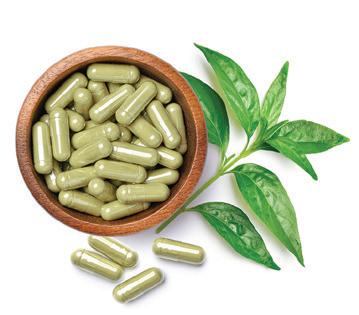
And the more efficiently brain cells communicate with each other, the better your overall memory and cognition will be.
But not all andrographis supplements can provide these benefits. To ensure you’re getting all the brain-saving perks andrographis has to offer, look for a supplement that provides a powerful dose of andrographolide. One proprietary formula features a unique blend of andrographis stem and leaf extracts for a total of 400 mg of andrographis. Listed on labels under the name EP80, this unique blend delivers 80 mg of andrographolide, which is the highest potency available.
14 Good Health LIFESTYLES


Recent Study Demonstrates EVEN MORE POWERFUL BENEFITS! †Occasional inflammation due to exercise or overuse. ^Protection against oxidative stress and damage. *These statements have not been evaluated by the Food and Drug Administration. This product is not intended to diagnose, treat, cure, or prevent any disease. When you’re looking for safe and effective overall cellular protection^ and support for a healthy inflammation response*† choose BosMed 500. This seal is your assurance of: A rigorous verification program with additional independent testing · Up to 10 times more of the important compound AKBA than unstandardized boswellia What is stated on the label is exactly what’s in the box BosMed® 500 contains only clinically studied, highly effective boswellia — NEVER ADULTERATED — BOSWELLIA True True Boswellia…Guaranteed! You Can Trust The Seal
Supplements like curcumin, French grape seed extract, and andrographis are powerful additions to your anti-inflammatory efforts. But unless you pair them with an anti-inflammatory diet, you won’t truly quench the low-level inflammation that contributes to so many diseases.
An increasing number of studies show that inflammation makes you more vulnerable to insulin resistance, prediabetes, and type 2 diabetes. But a steady dose of low-level inflammation also increases your risk of other life-disrupting conditions like heart disease and dementia. It can even contribute to premature aging! And the most common culprit in creating all of this harmful inflammation is what you eat and drink every day. By trading pro-inflammatory foods for anti-inflammatory choices, you’ll automatically reduce your risk and help optimize your health. In fact, it may even help you age backwards!



PRO-INFLAMMATORY VS. ANTI-INFLAMMATORY FOODS




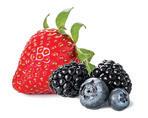
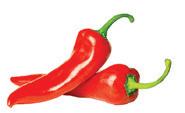




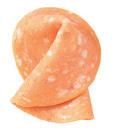

As a general rule, ultra-processed or sugary foods can spark or worsen chronic inflammation. Fresh, minimally processed foods, on the other hand, are more likely to reduce inflammation throughout the body. As a bonus, these foods are also rich in nutrients, including healthy fats and important antioxidants known as polyphenols.

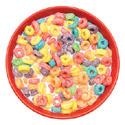
If you want to kick chronic inflammation to the curb, remember that one of the most powerful weapons isn’t found in your pharmacy. Instead, it’s found in your neighborhood grocery store. When possible, purchase whole, unprocessed foods with no labels. For foods like cooking oils or condiments, read the labels before putting them in your cart to ensure they are free from pro-inflammatory ingredients.

16
DEFEAT INFLAMMATION TRIGGER INFLAMMATION FOODS THAT EXTINGUISH INFLAMMATION Berries Cherries Dark chocolate (70%+ cacao content) Extra-virgin olive oil Grapes Green tea Mushrooms (all varieties) Peppers (bell and chili peppers) Tomatoes Avocados Broccoli Coffee Grass-fed, grassfinished, or pastured meat Fatty fish (wild-caught anchovies, salmon, sardines) Nuts and seeds (all varieties) Red wine (in moderation) Artificial preservatives Cereals Chips Commercially fried foods Pie and other pastries Seed oils (canola, corn, safflower, soy) Sodas, sweetened teas, and sports drinks Ultra-processed junk food Alcohol (in excess) Breads (all varieties) Cookies and cakes Factory-farmed red meat Grains (especially those with gluten such as barley or wheat) Processed meats Sugar and high-fructose corn syrup Trans fats AT T E




























EuroPhar maUSA .com MONEY-BACK GUARANTEE †Occasional muscle pain due to exercise or overuse. ^SPINSscan Condition Specific Supplement Formulas Subcategory, Brand Rank, based on 52 week data. *These statements have not been evaluated by the Food and Drug Administration. This product is not intended to diagnose, treat, cure, or prevent any disease.
#1 for Pain Relief * †
Curamin is the leading, award-winning pain relief *† product with clinically studied ingredients that provide
benefits. Curamin
occasional pain—it
the source
it.*† • SAFE, EFFECTIVE, and NON-ADDICTIVE • #1 selling herbal formula^ • No stomach, liver, or kidney damage
*†
®
Voted
Because it Works!
amazing
doesn’t just mask
gets to
and stops
STOPS PAIN
CURAMIN
Living an Anti-Inflammatory Lifestyle
For all its benefit fighting off an infection or healing an injury, inflammation also has a dark side. Problems arise when this helpful physiological process doesn’t know when to quit. The result is chronic low-level inflammation throughout the body that not only increases the risk of a myriad of diseases but also accelerates aging.
While a diet high in antiinflammatory foods and supplements such as andrographis, curcumin, and French grape seed extract can definitely help extinguish this internal fire, a healthy lifestyle is just as important. Here are six habits that can help reduce inflammation and put you on the road to better health.

1. Exercise often. Adopting a regular exercise program encourages healthy cell function and helps keep inflammation in check. Recent research out of the University of California, San Diego, shows that even one session of moderate exercise can have powerful anti-inflammatory benefits. But to truly get the most out of your workouts, strive to get at least 150 minutes of moderate-intensity exercise, or 75 minutes of high-intensity exercise, per week. Studies also show that the best types of exercise to reduce inflammation include bodyweight exercises (e.g., pushups, squats), swimming, and walking.
2. Avoid smoke and other airborne pollutants. Even if you’ve never smoked, exposure to secondhand smoke—as well as smog and the toxins in household products— can increase systemic inflammation. One study that appeared in the Journal of Immunology notes that exposure to secondhand smoke, in particular, not only sparks inflammation but also impairs your body’s natural defenses against respiratory infections and diseases.
4. Rein in stress.
Chronic stress begets chronic inflammation by encouraging a steady stream of the stress hormones adrenaline and cortisol. Over time, this can cause a dysfunction in your nervous and endocrine systems. The result is simmering inflammation that can spread throughout the body. Meditation, exercise, and breathwork have been clinically found to be effective stress busters.


3. Mind your dental health. Poor dental hygiene can lead to periodontal disease. This, in turn, can create widespread inflammation throughout the body. Dentists recommend brushing your teeth twice a day with a soft-bristled toothbrush and flossing at least once a day to remove plaque left behind after brushing. Replace your toothbrush every three to four months, or sooner if needed. It’s also important to schedule regular checkups with your dentist every six months.

5. Sleep well.
According to Harvard researchers, blood vessels relax and blood pressure drops during sleep. But when you
6. Watch your weight. Did you know that excess weight triggers the production of several pro-inflammatory immune cells called cytokines inside your fat cells? This low-level inflammation changes the way your body responds to insulin. This is likely why so many overweight and obese people suffer from type 2 diabetes. Because one of the biggest drivers of weight gain is ultraprocessed food, consider switching to a healthier way of eating—one that trades in processed food for highquality lean protein, healthy fats, and plenty of nonstarchy vegetables.

Good Health LIFESTYLES









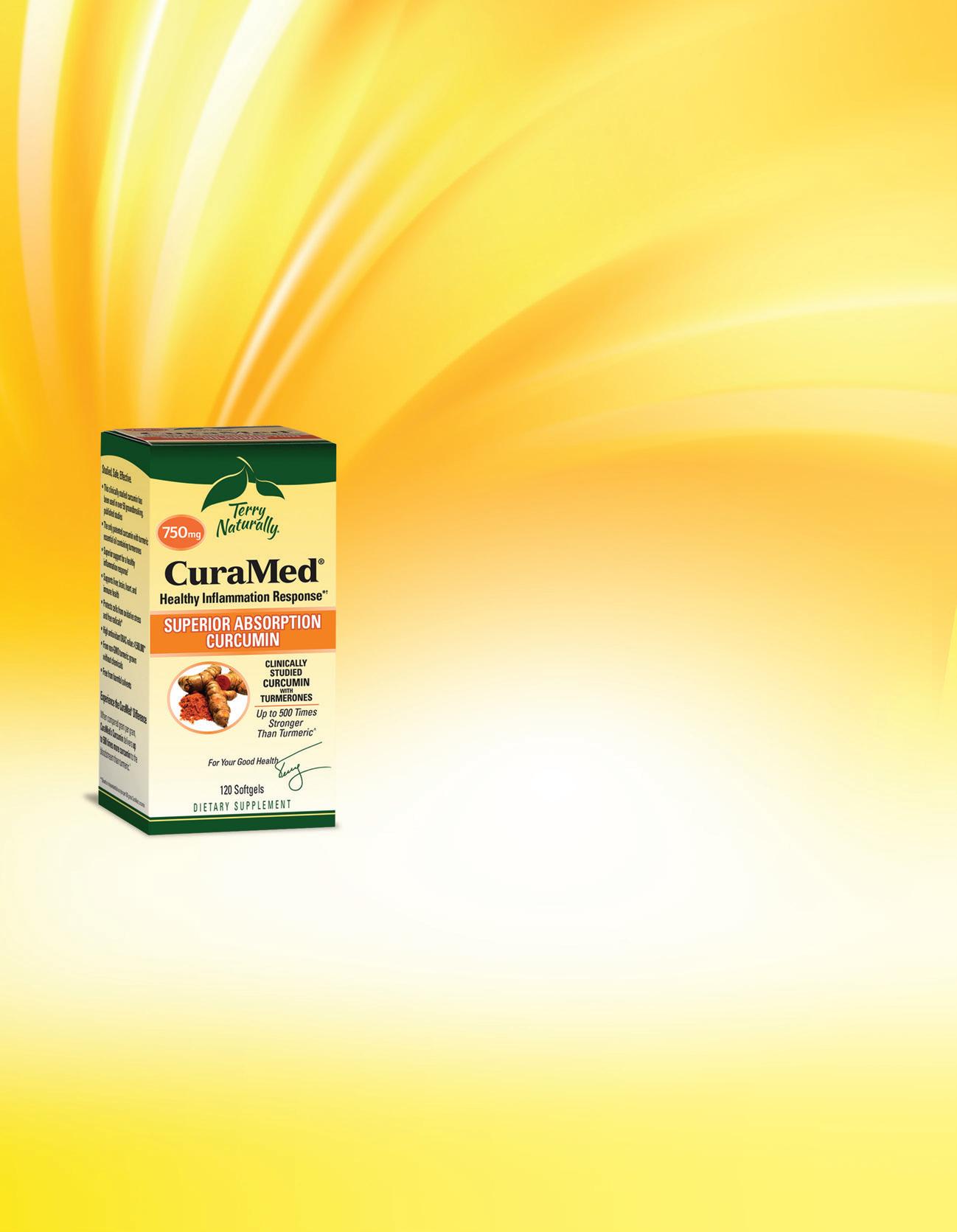






†Occasional inflammation due to exercise or overuse. ††SPINSscan Condition Specific Supplement Formulas Subcategory, Brand Rank, based on 52 week data. ^Based on enhanced absorption of CuraMed curcumin versus equivalent weight capsule of unstandardized turmeric containing 2% curcumin. *These statements have not been evaluated by the Food and Drug Administration. This product is not intended to diagnose, treat, cure, or prevent any disease. “I guarantee you the results you deserve or your money back!” When it’s your health, count on CuraMe d ®! Terry Lemerond, Founder and President Absorbs Better • Works Longer • More Effective^ • Clinically Proven Results Over 85 scientific studies Up to 500 times stronger than turmeric^ The ONLY PATENTED curcumin with turmeric essential oil containing ar-turmerone Absorption up to 700% (greater than standard curcumin) THE #1 SELLING CURCUMIN BRAND!†† Stronger, More Effective BCM-95 ® Curcumin ^






 DESIGN/ART DIRECTOR Roberta Jones
DESIGN/ART DIRECTOR Roberta Jones
 DIGITAL CREATIVE DIRECTOR Amy Medina
DIGITAL CREATIVE DIRECTOR Amy Medina



























































































































































































